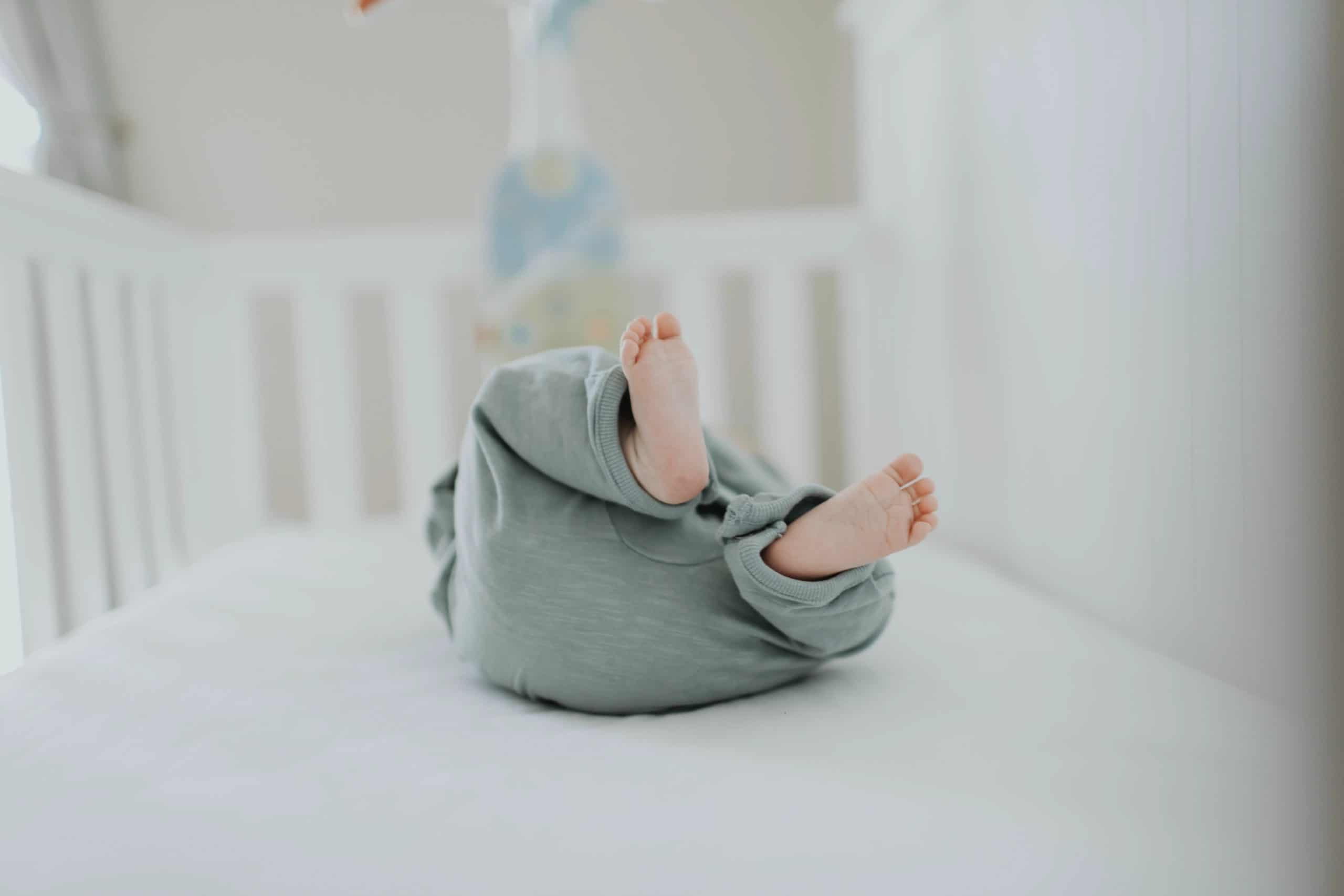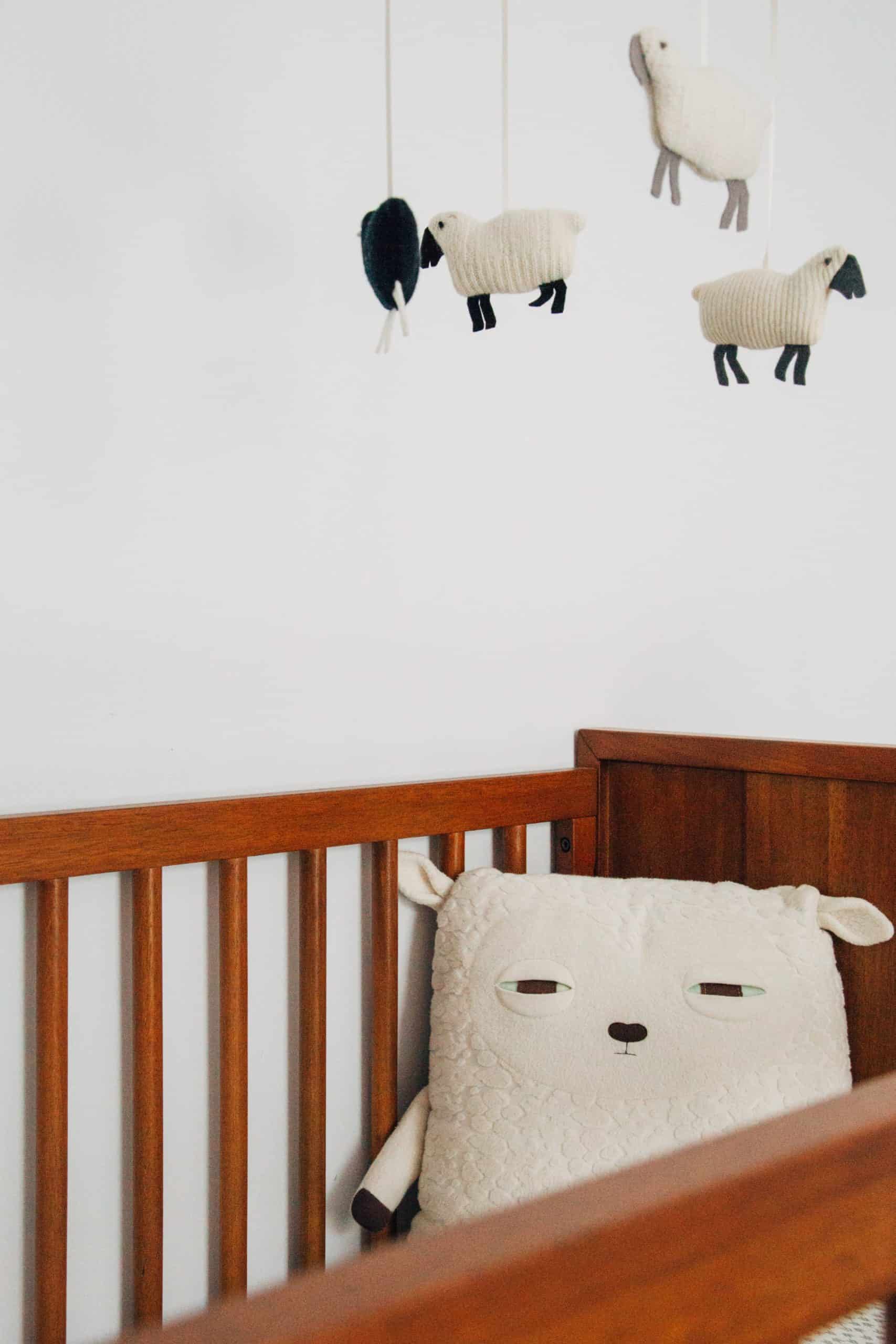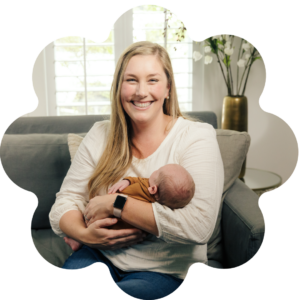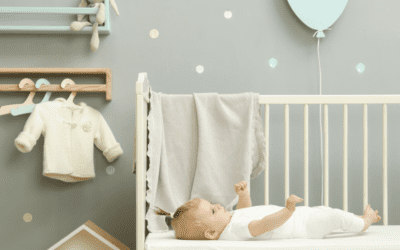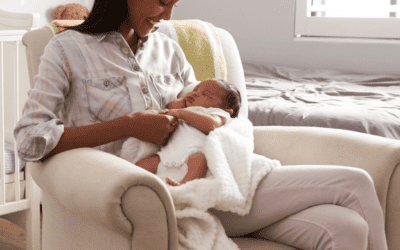Baby Settler Blog
Why it’s ok to put your baby in their own room
First things first. During the first six weeks of your baby’s life, I do recommend you have your baby sleep in your room (not your bed). You will be doing feedings so frequently at night that it does make sense to have your baby close to you. Also, it’s helpful as you learn your baby’s cues for feeding and sleep. However, once your baby starts to sleep five to six hours at night, I recommend considering transitioning them to their own room. It will help BOTH of you sleep better.
Hear this: if you don’t WANT to transition them, then don’t! I just don’t want you to feel like your baby HAS to sleep in your room for the first 6-12 months of your baby’s life. Have you been made to feel that way? I wouldn’t be surprised if you have. The AAP’s recommendation for Safe Sleep says…. Room sharing for 6- 12 months. Excuse me while I clear my throat… and catch my breath.
Things to Consider
- If you are breastfeeding (or pumping)…you are like an open buffet. Your baby can smell you! Who wouldn’t wake up in the middle of the night to feed when they are sleeping next to their meal?!?
- When you have a grunty, noisy sleeper…you won’t be getting good sleep. Your baby is probably fast asleep, but you aren’t. And you’re more likely to intervene when maybe your baby was just transitioning through a sleep cycle… not really “awake”.
- As your baby learns to self soothe and fall asleep independently, that’s going to be pretty hard to do if your eyes pop open every time her eyes pop open. I would even argue is MORE traumatizing to our babies to be visually seen and ignored than to have your baby in another room and implement the “pause” to see if your baby will settle before going in there.
- If you have to return to work (or when someone in your house returns to work) and your 6 A.M. alarm clock goes off are you REALLY ready for your little one to be up? Because if he’s in your room…he will be! Or, wouldn’t you much rather enjoy a shower or cup of coffee before you go get your little one?!?
These are my thoughts and professional opinions. But also, here’s some research from behavioral sleep medicine to back it up…
From Behavioral Sleep Medicine…
“Restating what the AAP currently recommends: suggests that it is “ideal” for infants to room share (but not bed share) with caregivers until 12 months of age in order to reduce the risk of SUID.
This is despite the fact that the highest risk period for SIDS is at ages 2–4 months and that 90% of SIDS cases occur before 6 months of age (Carlin & Moon, 2016). Furthermore, it may give parents the impression that risk for SIDS remains high in late infancy and thus unnecessa- rily create heightened parental anxiety.
An additional important consideration raised by the new guidelines involves a critical aspect of healthy sleep development in infants and toddlers, that is, the attainment of the ability to self-soothe and self-regulate sleep.
For example, studies have shown that infants and toddlers who have achieved such self-regulatory behaviors have fewer disruptive night wakings, resulting in improved sleep for infants and their parents (Sadeh, Tikotzky, & Scher, 2010). Standard sleep recommendations, as part of “anticipatory guidance” for infants, typically include having the caregiver put the infant to sleep at bedtime “drowsy but awake” and leaving the room in order to facilitate independent entry into sleep (i.e., without parental assistance; Symon, 2011).
Acquisition of this learned developmental skill then allows the infant to independently return back to sleep after normal night wakings, again without requiring caregiver intervention, and reduces the risk of developing inappropriate sleep-onset associations that lead to prolonged and problematic night wakings, one of the most common sleep issues in young children (France & Blampied, 1999). Thus room sharing could potentially interfere with independent self-soothing and self-regulation if the caregiver is unable or unwilling to implement these procedures at bedtime or during the night if the infant is sleeping in the same room.”
You’ve got this!
Hillary
Reference/Source:
Byars, K. C., & Simon, S. L. (2017). American Academy of Pediatrics 2016 Safe Sleep Practices: Implications for Pediatric Behavioral Sleep Medicine. Behavioral Sleep Medicine, 15(3), 175.
Baby Spit Up: Causes And Tips To Reduce It
Spit happens, mama. Breastmilk or formula coming back up after feeding your baby isn’t an immediate cause for concern. This is why burp cloths exist! But, why do babies spit up, and when does normal spit up become abnormal? Are there any ways to reduce spit up, and...
Tips And Strategies For Managing Your Breast Milk Supply As Your Baby Sleeps Through The Night
Congratulations, mama! Your baby is finally sleeping through the night and you can get some uninterrupted rest. But, what does this mean for your breast milk supply? If you want to continue nursing during the day, do you need to pump at night to make up for missed...
How Long Is Long Enough? Factors To Consider For Effective Breastfeeding
Breastfeeding your baby can come with a lot of anxiety. You may be asking yourself, “Are they eating enough?”, “Did they nurse for long enough?”, “When should I switch them to nurse at the other breast?” Many of these questions can be answered by your baby! You just...

